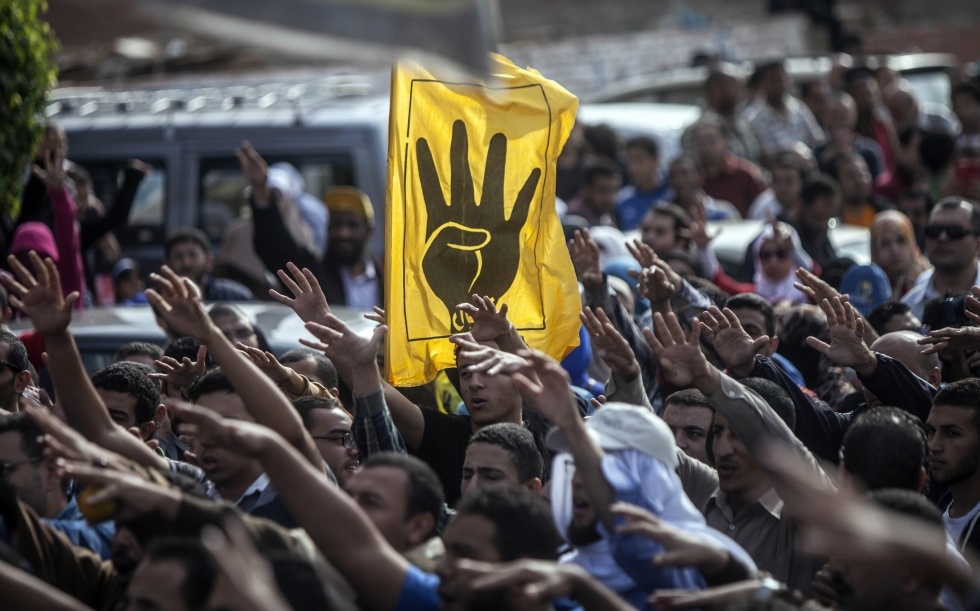Brotherhood reaffirms 'principled' rejection of violence

By Hussein Qabani
CAIRO – Egypt's Muslim Brotherhood reiterated on Wednesday what it described as a longstanding and principled rejection of violence amid a widening campaign by the group's opponents – both at home and abroad – to associate it with violence.
In a statement, Brotherhood Secretary-General Mahmoud Hussein, who is currently based in Qatar, provided a detailed account of the movement's position on violence.
"The group's activities and struggle against corruption and despotism have always been based on a total commitment to peacefulness and rejection of violence in all its forms," he said.
Hussein said the Brotherhood members have, over the years, endured arrests, torture, persecution and murder without resorting to violence in response.
New MEE newsletter: Jerusalem Dispatch
Sign up to get the latest insights and analysis on Israel-Palestine, alongside Turkey Unpacked and other MEE newsletters
"The group never responded, in word or deed, to those who brutally tortured its members from 1954 to 1965," he said, referring to the era of late president Gamal Abdel-Nasser, who ordered a crackdown on the Brotherhood after accusing its leaders of plotting an attempt on his life.
"Around 50,000 Brotherhood members were also subject to a mass arrest campaign under [ousted] president Hosni Mubarak [who ruled from 1981 to 2011] – some of whom were killed, tortured or brought before military courts – and yet we never resorted to violence," Hussein added.
Since the army's July 3 ouster of elected president Mohamed Morsi – himself a Brotherhood leader – after only one year in office, the interim authorities have conducted a massive crackdown on the group and its supporters, which left hundreds dead and several thousand detained.
Most of the Brotherhood's top leaders currently face trial on violence-related charges.
Morsi himself faces multiple charges including incitement to murder, jailbreak and espionage.
Egypt has remained in a state of upheaval since Morsi's overthrow, witnessing a string of deadly attacks on security personnel in the Sinai Peninsula, Cairo and the Nile Delta.
The interim government officially designated the Muslim Brotherhood a "terrorist organization" last December after accusing it of bombing a Nile Delta police headquarter and killing 16 people, mostly policemen.
The Brotherhood immediately condemned the bombing attack, which was claimed by a shadowy militant group calling itself Ansar Beit al-Maqdis.
Government officials and pro-army media claim that the militant group is linked to the Brotherhood, though no evidence of such a link has ever been produced.
The Egyptian government's decision to label the Brotherhood a terrorist group was emulated last month by Saudi Arabia, which had been among the first countries to welcome Morsi's ouster by the army.
British Prime Minister David Cameron has recently ordered a review of the Brotherhood's ideology and activities in Britain.
"The Brotherhood's stance against violence applies to its members both at home and abroad," Hussein said in the Wednesday statement.
"Brotherhood members have never – nor will they ever – interfere in any country's internal affairs," he added.
"These are the Brotherhood's core principles; not a personal opinion," Hussein said.
"Whoever associates him/herself with the Brotherhood must abide by these principles; otherwise he/she does not belong to, nor represent, the Brotherhood," he asserted.
Middle East Eye delivers independent and unrivalled coverage and analysis of the Middle East, North Africa and beyond. To learn more about republishing this content and the associated fees, please fill out this form. More about MEE can be found here.

